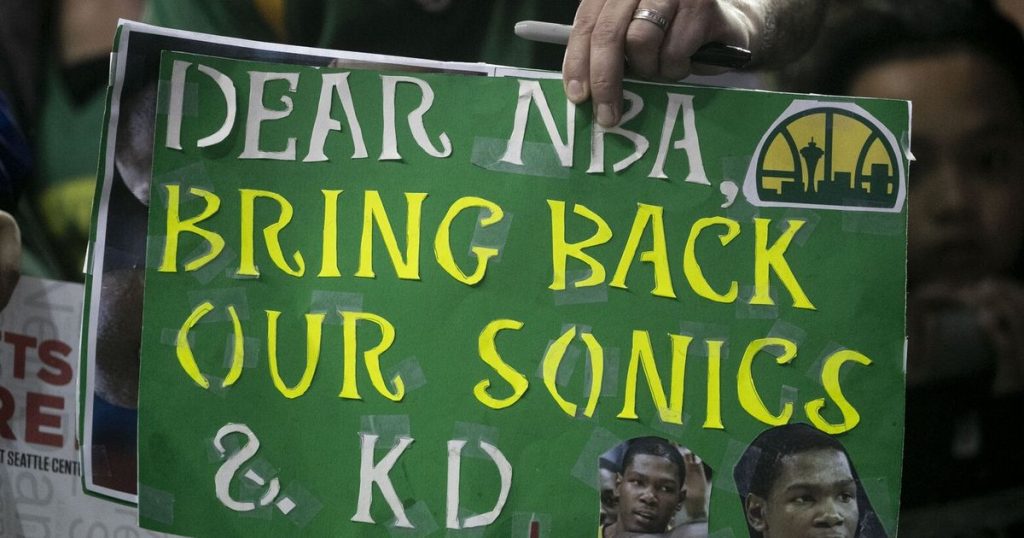The NBA has been cautiously exploring the idea of expanding for over a year now, making sporadic progress while also seeing discussions stall at times.
The league may now be poised to fully engage in discussions about adding one or two new teams, especially with Seattle’s prospects coming back into focus, following the confirmed sale of the Boston Celtics on Thursday.
While changes won’t happen overnight and may not match the pace yearned for by SuperSonics fans, important issues have been addressed, paving the way for potential advancements in this conversation.
What’s the situation in Boston?
The current Boston Celtics owners have reached an agreement to sell the franchise to a consortium led by Bill Chisholm for a record-setting valuation of $6.1 billion, the highest ever for a professional sports team in North America.
This sale of a franchise that is among the league’s most prestigious has been an unforeseen development in the expansion narrative and has previously hindered the NBA from contemplating the addition of new teams.
Why is the Celtics’ sale significant?
This sale represents the final major financial deal for the NBA to resolve. Two years ago, the league struck a new collective bargaining agreement with players, and last year it solidified a significant media rights agreement worth $76 billion over the next 11 years.
Additionally, it appears the sale of the Minnesota Timberwolves is nearing completion after recent favorable rulings for new owners Marc Lore and Alex Rodriguez.
The Celtics’ sale not only finalizes a key franchise status but also provides a current valuation for determining potential expansion fees. Previously, the last sale was the Phoenix Suns, which were valued at $4 billion. The average of these two valuations could serve as a reasonable starting point for expansion fees.
What are the forthcoming steps?
The NBA Board of Governors is set to convene before the conclusion of the regular season, possibly as soon as next week. Although it remains uncertain whether expansion will be discussed, the movement on the Celtics sale at least opens the door for dialogue on this topic. It’s possible that discussions may be deferred until after the season, as seen last year during the NBA Summer League in July.
When the subject is initiated, it likely won’t be a simple approval process; significant discussions will likely occur among owners regarding the timing of expansion, particularly with concerns about the existing talent pool and the financial implications of adding new teams. Some owners might require persuading that expansion is beneficial for the league and their franchises.
What is Seattle’s standing?
While there have not been any notable changes, the ownership group of the Kraken, under Samantha Holloway, is poised to pursue expansion once the NBA indicates it is ready to consider the topic. Holloway stated on Thursday, “we will always be respectful of the Commissioner’s process and timeline.”
There’s still some ambiguity regarding whether another potential ownership group may emerge to challenge Holloway and create a competitive bidding atmosphere, which the NBA might welcome as it could enhance the expansion fee or lead to additional financial negotiations.
When might expansion occur?
There are no assurances throughout this process, meaning expansion may not come to fruition at all. However, should the league decide to initiate expansion discussions either this spring or over the summer, it is conceivable that the 2027-28 season could be a viable target for the arrival of new teams.



